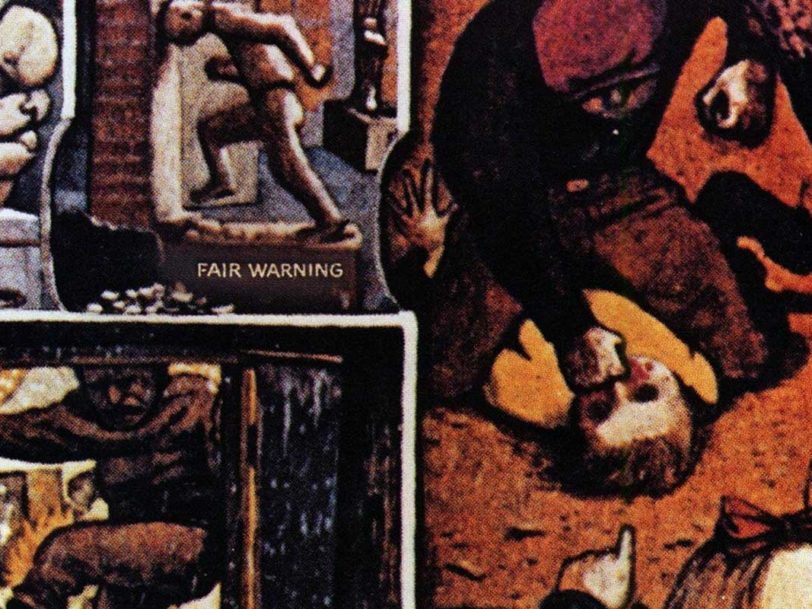By 1981, Van Halen had perfected pop metal. Their second album had featured a masterful reinvention of Dee Dee Warwick’s classic R&B single You’re No Good alongside the group’s own first US Top 20 hit, Dance The Night Away; throw in the instantly iconic Beautiful Girls and it’s easy to see why the Pasadena four-piece were known as California’s premier party band. Women And Children First, their first collection of all-original material, shifted that sound on its axis. Where songs such as Could This Be Magic? retained some of the innocence of their first two records, And The Cradle Will Rock… and Everybody Wants Some!! showed off a heavier, side to the band. By the time Fair Warning came along, the band had lost that innocence entirely as they entered an altogether darker period – both personally and professionally.
Listen to Fair Warning here.
“I wasn’t happy with the way things were going”
Taking place over the course of three weeks at Los Angeles’ Sunset Sound studios, the Fair Warning sessions mirrored those of Van Halen’s three previous records, with the closing song, the punk-charged One Foot Out The Door, being named, as producer Ted Templeman suggested, for the group’s fast-paced work rate – something they wouldn’t get away from until their monster hit album, 1984.
The record as a whole is coloured with the angst and frustration of Van Halen’s individual members. Singer David Lee Roth was nursing a bruised ego over Eddie Van Halen’s upcoming marriage to actress Valerie Bertinelli, which had caused a rift between the band’s two creative linchpins. “It was kind of a dark period in my life. I was getting married, which flipped Roth out to the bone,” Eddie recalled. “I actually overheard him say, ‘That fucking little prick, not only is he winning all the guitar awards, but he’s also the first to marry a movie star.’”




